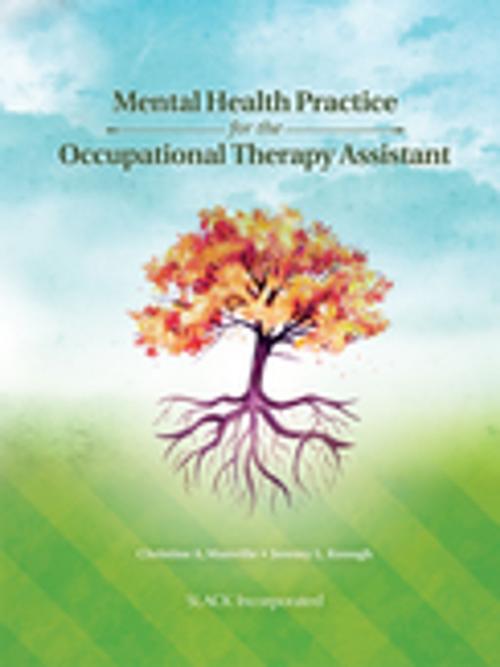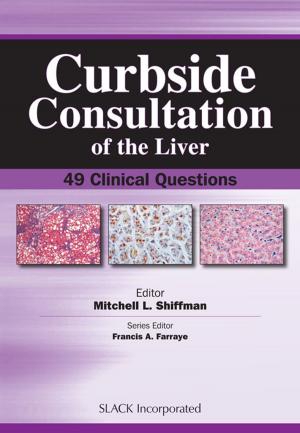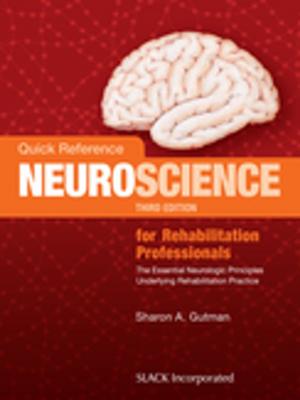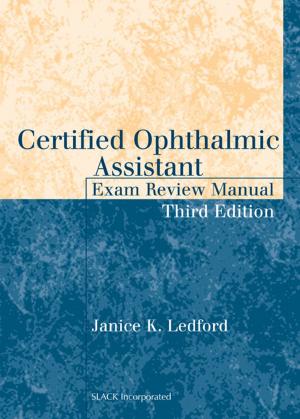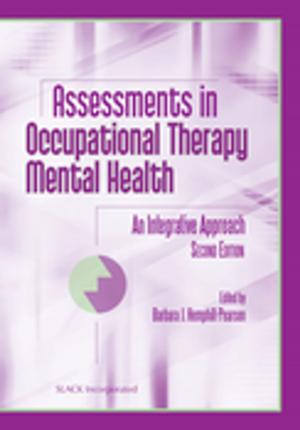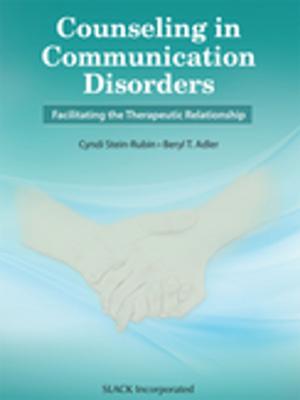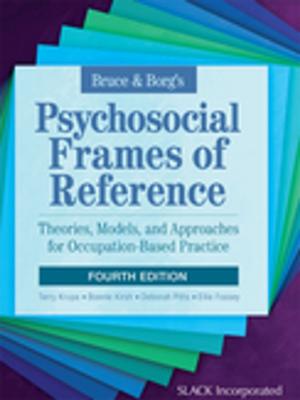Mental Health Practice for the Occupational Therapy Assistant
Nonfiction, Health & Well Being, Medical, Allied Health Services, Occupational Therapy| Author: | ISBN: | 9781630913328 | |
| Publisher: | SLACK Incorporated | Publication: | January 15, 2016 |
| Imprint: | SLACK Incorporated | Language: | English |
| Author: | |
| ISBN: | 9781630913328 |
| Publisher: | SLACK Incorporated |
| Publication: | January 15, 2016 |
| Imprint: | SLACK Incorporated |
| Language: | English |
Mental Health Practice for the Occupational Therapy Assistant is a comprehensive text that delineates the role of the occupational therapy assistant in the delivery of mental health services. Christine Manville and Jeremy Keough provide information and learning activities that enable the student to build knowledge of mental health practice, incorporating approaches used in the traditional medical model, as well as the community. The impact of mental illness on occupational performance across the lifespan is also examined. Mental Health Practice for the Occupational Therapy Assistant guides the reader in how to analyze the service environment, including cultural, societal and political factors; explore the client’s participation in age-appropriate, meaningful occupations; and, under supervision of the occupational therapist, provide treatment that includes 1:1 and group interventions. Mental Health Practice for the Occupational Therapy Assistant structures each chapter to provide an enhanced approach to student learning by incorporating concepts from Bloom’s Taxonomy. Current and emerging trends in mental health practice are discussed, as well as service provision in the traditional medical model. The appendices include a discussion of additional factors that impact the provision and efficacy of therapy services, including pharmacology and ethical and legal issues. Features: • Provides an overview of the DSM-5 and the World Health Organization’s International Classification of Functioning, Disability, and Health. These classification systems provide a common language for practitioners from a variety of disciplines to communicate about the impact of mental illness on occupational performance and participation • Describes the use of general educational strategies to enhance the teaching/learning process in the provision of occupational therapy services • Terminology from the Occupational Therapy Practice Framework, Third Edition is utilized to enhance the development of clinical reasoning and practice skills • Provides information on how to communicate effectively with clients • Mental health practice is viewed across the lifespan Instructors in educational settings can visit www.efacultylounge.com for additional materials to be used in the classroom. Mental Health Practice for the Occupational Therapy Assistant is an excellent side-by-side resource for the occupational therapy assistant, occupational therapist, or any practitioner working in a mental health setting.
Mental Health Practice for the Occupational Therapy Assistant is a comprehensive text that delineates the role of the occupational therapy assistant in the delivery of mental health services. Christine Manville and Jeremy Keough provide information and learning activities that enable the student to build knowledge of mental health practice, incorporating approaches used in the traditional medical model, as well as the community. The impact of mental illness on occupational performance across the lifespan is also examined. Mental Health Practice for the Occupational Therapy Assistant guides the reader in how to analyze the service environment, including cultural, societal and political factors; explore the client’s participation in age-appropriate, meaningful occupations; and, under supervision of the occupational therapist, provide treatment that includes 1:1 and group interventions. Mental Health Practice for the Occupational Therapy Assistant structures each chapter to provide an enhanced approach to student learning by incorporating concepts from Bloom’s Taxonomy. Current and emerging trends in mental health practice are discussed, as well as service provision in the traditional medical model. The appendices include a discussion of additional factors that impact the provision and efficacy of therapy services, including pharmacology and ethical and legal issues. Features: • Provides an overview of the DSM-5 and the World Health Organization’s International Classification of Functioning, Disability, and Health. These classification systems provide a common language for practitioners from a variety of disciplines to communicate about the impact of mental illness on occupational performance and participation • Describes the use of general educational strategies to enhance the teaching/learning process in the provision of occupational therapy services • Terminology from the Occupational Therapy Practice Framework, Third Edition is utilized to enhance the development of clinical reasoning and practice skills • Provides information on how to communicate effectively with clients • Mental health practice is viewed across the lifespan Instructors in educational settings can visit www.efacultylounge.com for additional materials to be used in the classroom. Mental Health Practice for the Occupational Therapy Assistant is an excellent side-by-side resource for the occupational therapy assistant, occupational therapist, or any practitioner working in a mental health setting.
